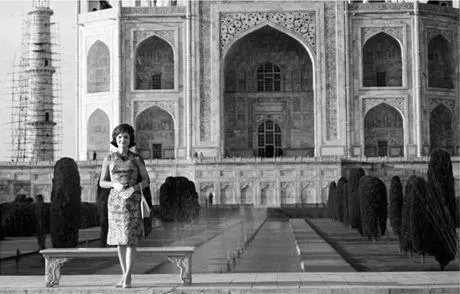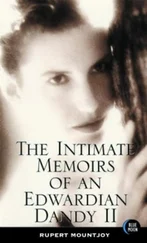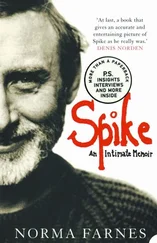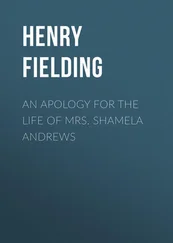“And how is Jackie?”
“She’s doing very well, Mr. Sinatra. As well as can be anticipated under the circumstances.”
The conversation went on for about twenty minutes, as it usually did, with Sinatra trying to find out what he could about Mrs. Kennedy’s activities, and me giving him the barest of information in return. I didn’t enjoy these conversations, but I knew that I was saving Mrs. Kennedy the uncomfortable position of having to go through them herself.
“Well, please tell Jackie I called,” he said, as he always did.
“Oh, yes, I will, Mr. Sinatra.”
I hung up the phone and called Mrs. Kennedy.
“I just got off the phone with Mr. Sinatra, Mrs. Kennedy.”
“Oh? What did he say?”
“We had a very pleasant conversation and he wanted me to relay to you his concern about the ambassador as well as his concern for you and the president.”
“Thanks for letting me know, Mr. Hill. I’ll talk to him myself one of these days.”
THE APPROACHING CHRISTMAS Day caused Mrs. Kennedy some concern regarding gifts and the appropriate attitude considering the Kennedy patriarch’s condition. She decided to once again venture out to Worth Avenue, hoping to regain the celebratory feeling of a normal Christmas. Once again the store employees were in awe and soon people were gathering and gawking through store windows. Agent Jeffries and I worked as a team, with one of us walking in front of Mrs. Kennedy, parting the way through the crowd, constantly saying, “Excuse us, please. May we get through here please?” while the other walked behind her. We tried to be as respectful as possible, and usually people responded positively to our requests, but every so often, we’d have to extend an arm or use our body to fend off an overzealous individual trying to reach Mrs. Kennedy. We managed to keep the people away so that she could purchase some gifts for Caroline and John, and other family members, but it was not the pleasant experience she had hoped for.
Later she pulled me aside and said, “Mr. Hill, it seems I can’t go anywhere anymore without causing a scene. It is so difficult to do the rather simple things I enjoy, like buying a gift, without it becoming a front-page story.”
She wasn’t complaining, just stating the facts. Then she looked up at me with wistful eyes and asked, “Isn’t there something you can do about it, Mr. Hill?”
A thought entered my head, but rather than respond right away, I paused and said, “Let me think about the problem, Mrs. Kennedy, and I’ll see what I can come up with.”
Thus it was that I became a frequent shopper on Worth Avenue, buying swimwear for the president, toys for the children, and personal items for Mrs. Kennedy. This was not in the job description the Secret Service had for me, but it was just one more way to make life a lot easier and less confrontational for Mrs. Kennedy. She appreciated my efforts, and I considered it a good protective move to remove her from public exposure as much as possible.
Christmas came and went, as the remaining time in Palm Beach became somewhat routine, day after day. Go to St. Mary’s Hospital to see the president’s father; stop by the chapel and pray or go to St. Ann’s Church in West Palm Beach or St. Edward’s in Palm Beach; have a lunchtime cruise aboard the Honey Fitz; back to St Mary’s Hospital in the afternoon. The days were long, and the laughter that had once been constant in the bustling Kennedy household had all but disappeared.
Late one evening, Paul Landis and I were driving back to Woody’s Motel together, discussing the day’s events and how incredibly sad the situation was. By this point the doctors had said there was nothing they could do. Ambassador Kennedy would be paralyzed and confined to a wheelchair for the rest of his life. They said that he had retained full cognizance and intellectual capacity, but it was unlikely he would ever speak again. He would be a prisoner in his own body, unable to have the influence that he had thrived upon, and on which President Kennedy had relied.
It seemed like there was nothing to feel good about, when Paul suddenly remembered a bright spot in the day.
“I did see the president smile one time today,” Paul said.
“Oh really?” I asked. I couldn’t imagine what could have possibly made the president smile throughout this terrible ordeal.
“He had just taken Caroline in to visit the ambassador, and when we walked out of the elevator, on the ground floor, there was a gumball machine there. Caroline saw it and asked, ‘Daddy, may I please have a gumball?’
“The president looked at her and said, ‘Oh, Buttons, I’m sorry, you need a penny for the gumball machine. I don’t have a penny.’”
I shook my head in amusement. It was so typical of JFK—he never carried money. Here he was the President of the United States and he didn’t have a penny for the gumball machine.
Paul continued, “Poor Caroline looked like she was going to crumble. So the president turned to me and asked, ‘Mr. Landis, do you happen to have a penny?’
“I pulled out the change in my pocket, and fortunately, I did have a penny.
“‘As a matter of fact I do,’ I said as I handed Caroline the penny.
“Her eyes got big and she said, ‘Oh, thank you, Mr. Landis!’
“You’d think I had given her a diamond ring,” Paul added with a laugh.
We were both laughing now. I could see little Caroline, just as excited as could be over such a simple thing as a gumball.
Paul continued. “So she struggled a bit to get the penny into the machine, but she finally did it, and the president helped her turn the knob, and when the gumball rolled out, she just grabbed it and popped it in her mouth, and began chewing away, a big smile on her face.
“I turned to look at the president and he had a big grin on his face.
“Then he said, ‘Thank you, Mr. Landis. I owe you a penny.’”
EVEN AFTER THE president returned to Washington, Mrs. Kennedy stayed in Palm Beach with John and Caroline, and continued to visit the ambassador in the hospital on a daily basis. It was clear to me that these visits were not out of obligation, but came from her deep love and devotion to her father-in-law. She would often bring Caroline, whose innocent, exuberant spirit was uplifting not only to Mr. Kennedy, but to members of the hospital staff as well. Caroline would help the nurse push her grandfather’s wheelchair down the hospital corridor, chattering on about what had happened on the morning’s walk on the Lake Trail, completely undaunted by his inability to respond.
It was a rough Christmas on all of us—for the Kennedy family, who were struggling to understand what the future would be like without Joe’s ability to offer advice; for Mrs. Kennedy, trying to deal with the ever-growing pressures of being in the public eye; and for the agents, spending another holiday away from our own families.
Everybody was looking forward to turning a new page in 1962. Little did we know it would be one of the best years of our lives.
PART THREE
1962
10
Traveling with Mrs. Kennedy
India

Mrs. Kennedy at the Taj Mahal
In early February, Jerry Behn, the Special Agent in Charge of the White House Detail, informed me that, after much discussion and several postponements, Mrs. Kennedy was going to India, and Pakistan as well. I would be in charge of the advance, working closely with Ambassador John Kenneth Galbraith.
Читать дальше












